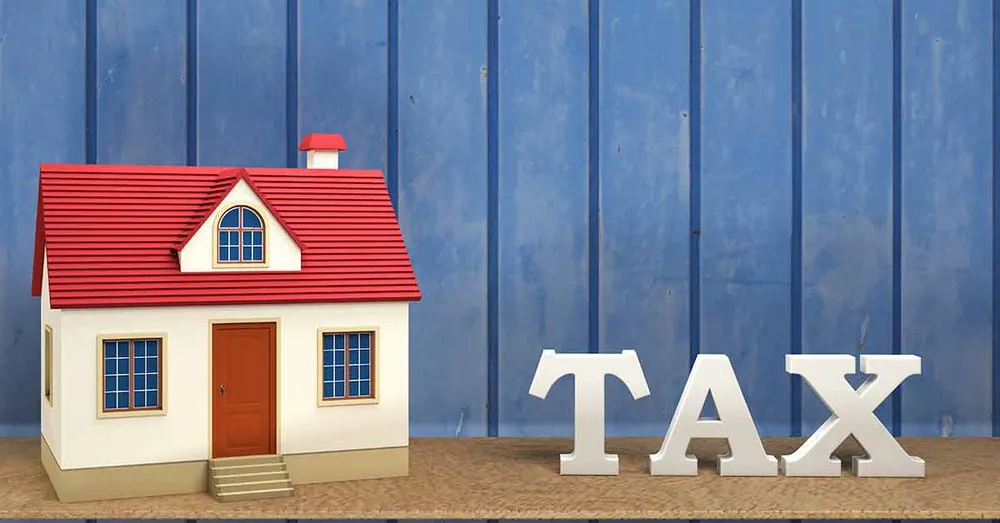
Professor ĐẶNG HÙNG VÕ, Doctor of Science, and former Deputy Minister of Natural Resources and Environment, discussed various issues arising in this new law, in a talk with Saigon Investment recently.
JOURNALIST: - Sir, what is your opinion on the Law on Real Estate Tax expected to be passed by 2025, which will separate houses and land for tax purpose and impose a higher tax rate on vacant houses and real estate land?
Prof. ĐẶNG HÙNG VÕ: - Real estate tax and housing tax, if passed, must maintain the principle of not increasing tax on property but reforming tax on property. This is to say that this tax is not levied on the poor but on housing only, so the content of the law must levy a strong tax on people with second homes and high-value homes. At the same time, it is necessary to increase the land tax to a certain extent. Therefore, specific content such as tax rates, and taxable thresholds must be discussed more carefully when the Ministry of Finance issues a new draft.
As for housing tax, currently, many countries in the world have implemented it, but in Vietnam, I think it is not possible at this time. This is because for two reasons, namely, people's living standards and incomes are not really high, so taxing houses will cause a burden on the people in general. The other reason is the legal system which is related to housing in our country, and which has not yet been perfected. We say tax housing, but this lies in how we manage our housing today. I think we still haven't managed the housing problem so how can we classify it for tax purposes. Because of these reasons more time is needed, and there must also be a clear roadmap.
- Sir, one noteworthy point in this draft is that of tax arrears for users of many real estates, especially abandoned real estate. In your opinion, how will this affect the real estate market in general?
- The issue of taxing people with many real estates is not a new issue, and it was previously mentioned in Resolution 19 in 2012, but during that time the Ministry of Finance proposed but it was not approved. Because each time this issue is mentioned, it is difficult to put it into practice, as the state management agencies think that there is a lack of guidelines for its implementation. This also shows that state agencies have not implemented the Resolution of the Central Executive Committee during the last ten years. They did not study issues to apply properly, sufficiently, and with a clear basis. If implemented well as proposed by the Ministry of Finance, enacted tax laws can soon stabilize the market.
In my opinion, the provisions in this draft are somewhat positive when emphasizing the promulgation of a land use tax law in accordance with international practices, but not in accordance with the Vietnamese situation. In it, it is worth mentioning that high taxes are imposed on people who have a lot of real estate, and speculators do not put the land to use to fallow.
On the other hand, there should be tax incentives for the weak and vulnerable groups such as poor farmers, ethnic minorities, and localities with the responsibility to ensure food security. It is easy to see that in Resolution 18, there is a more specific mention, making the motivation for tax law development clearer and more feasible.
- Sir, as you said earlier, the collection of housing tax needs to have a roadmap and also choose an appropriate time. When would be this specific time in your opinion?
- Vietnam has applied this policy before. In 1991, our country imposed a tax on houses and land with a tax rate of 0.3% to 0.4% of the value. But in 1992, the house tax was abolished and only land tax was collected. The year 2010 continued to change when the tax revenue from non-agricultural land exceeded the limit. Therefore, it is also practical to collect both house and land taxes now. But the problem is to be transparent, clearly classify and manage, and avoid overlapping taxes and fees.
In fact, we've covered this issue of tax collection many times and also learnt a lot in certain contexts, so it is a good time to introduce a home and property tax. Taxes related to real estate in Vietnam are currently too low, only 0.03%, while in other countries the tax rate is usually around 1% to 1.5%. With the way of taxing houses and assets like the world is doing, it helps the budget get contributions from everyone.
As I said earlier, the principle is not to increase property tax but to reform wealth tax. That is to say that this tax is not levied on the poor but on housing, on second homes and high-value homes. This is an effective solution for land fever and house price stabilization. This will include the effective use of the entire tax machinery and the issuance of property tax.
Building a real estate tax law is not possible in a day or two. The immediate thing to do is to focus on research and forming guidelines and regulations on application and a roadmap which needs to be associated with the process of building a digital administrative system. Currently, tax collection is still being done manually, so it is necessary to build a digital management system for better accuracy along with a specific roadmap.
- Thank you very much.




















